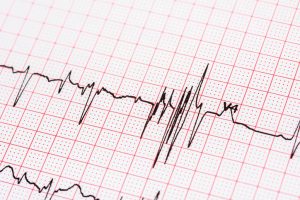
Atrial fibrillation in older adults may affect strength, balance, gait speed, and coordination: Study
Atrial fibrillation in older adults may affect strength, balance, gait speed, and coordination. A study has found that atrial fibrillation – a common form of irregular heartbeat – can accelerate age-related declines in walking speed and strength.
Lead author Jared W. Magnani said, “Particularly in older adults, we need to be mindful that the effects of atrial fibrillation (AFib or AF) go beyond increasing the risk of heart failure and stroke. We learned from this study that older adults with AFib are especially vulnerable to losing strength, balance, gait speed, and coordination.” Continue reading…
Tinnitus causes, signs, and symptoms
Tinnitus may also make it difficult for a person to pay attention to others or concentrate on one thing, so it definitely has a negative impact on one’s overall quality of life. Continue reading…
Natural home remedies for conjunctivitis (pink eye) in elderly
Conjunctivitis is caused by inflammation, infection, or allergic reaction. Bacteria can enter the eye through rubbing, contaminated fluid, or a foreign object touching the eye.
Both viruses and bacteria can lead to conjunctivitis. If someone with conjunctivitis touches their eye and comes in contact with someone else or with objects other people may touch, an unsuspecting person may pick up the infection and develop pink eye. It is spread easily. Continue reading…
Urinary tract infection risk assessed in women after pelvic organ prolapse surgery and urinary incontinence: Study
The study found that certain urinary bacteria and antimicrobial peptides, which promote proper functioning of the bladder immune system, may help identify a woman’s risk of UTI following pelvic floor surgery. Continue reading…
Cataract surgery in dementia patients may improve vision and slow mental decline: Study
Researcher Dr. Alan Lerner said, “These preliminary results indicate that improved vision can have a variety of benefits for people with dementia and their loved ones, both visual and non-visual.”
Cataract surgery involves removing the eye’s cloudy lens and replacing it with an artificial clear lens.
The study included 20 dementia patients who had cataract surgery along with a control group of eight patients who did not undergo the surgery. Continue reading…